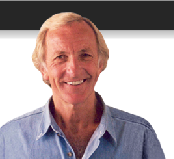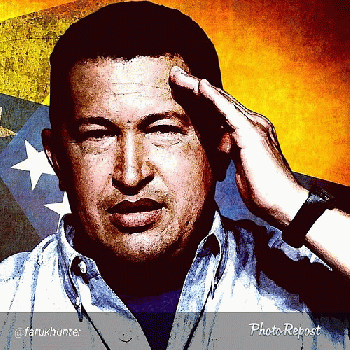From John Pilger Website
Travelling with Hugo Chavez, I soon understood the threat of Venezuela. At a farming co-operative in Lara state, people waited patiently and with good humor in the heat. Jugs of water and melon juice were passed around. A guitar was played; a woman, Katarina, stood and sang with a husky contralto.
"What did her words say?" I asked.
"That we are proud," was the reply.
The applause for her merged with the arrival of Chavez. Under one arm he carried a satchel bursting with books. He wore his big red shirt and greeted people by name, stopping to listen. What struck me was his capacity to listen.
But now he read. For almost two hours he read into the microphone from the stack of books beside him: Orwell, Dickens, Tolstoy, Zola, Hemingway, Chomsky, Neruda: a page here, a line or two there. People clapped and whistled as he moved from author to author.
Then farmers took the microphone and told him what they knew, and what they needed; one ancient face, carved it seemed from a nearby banyan, made a long, critical speech on the subject of irrigation; Chavez took notes.
Wine is grown here, a dark Syrah type grape. "John, John, come up here," said El Presidente, having watched me fall asleep in the heat and the depths of Oliver Twist.
"He likes red wine," Chavez told the cheering, whistling audience, and presented me with a bottle of "vino de la gente." My few words in bad Spanish brought whistles and laughter.
Watching Chavez with la gente made sense of a man who promised, on coming to power, that his every move would be subject to the will of the people. In eight years, Chavez won eight elections and referendums: a world record. He was electorally the most popular head of state in the Western Hemisphere, probably in the world.
Every major chavista reform was voted on, notably a new constitution of which 71 percent of the people approved each of the 396 articles that enshrined unheard of freedoms, such as Article 123, which for the first time recognized the human rights of mixed-race and black people, of whom Chavez was one.
One of his tutorials on the road quoted a feminist writer: "Love and solidarity are the same." His audiences understood this well and expressed themselves with dignity, seldom with deference. Ordinary people regarded Chavez and his government as their first champions: as theirs.
This was especially true of the indigenous, mestizos and Afro-Venezuelans, who had been held in historic contempt by Chavez's immediate predecessors and by those who today live far from the barrios, in the mansions and penthouses of East Caracas, who commute to Miami where their banks are and who regard themselves as "white." They are the powerful core of what the media calls "the opposition."
When I met this class, in suburbs called Country Club, in homes appointed with low chandeliers and bad portraits, I recognized them. They could be white South Africans, the petite bourgeoisie of Constantia and Sandton, pillars of the cruelties of apartheid.
Cartoonists in the Venezuelan press, most of which are owned by an oligarchy and oppose the government, portrayed Chavez as an ape. A radio host referred to "the monkey." In the private universities, the verbal currency of the children of the well-off is often racist abuse of those whose shacks are just visible through the pollution.
(Note: You can view every article as one long page if you sign up as an Advocate Member, or higher).






